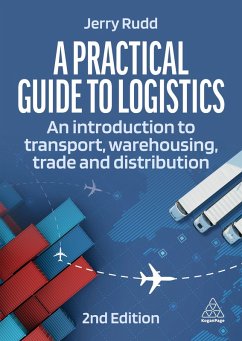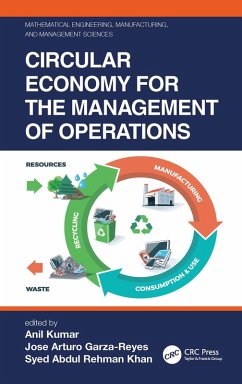
Packaging Logistics (eBook, ePUB)
Understanding and managing the economic and environmental impacts of packaging in supply chains
Versandkostenfrei!
Sofort per Download lieferbar
37,95 €
inkl. MwSt.
Weitere Ausgaben:

PAYBACK Punkte
19 °P sammeln!
Packaging has a major impact on supply chain performance, as it affects all logistics activities in supply chains. Effective and efficient packaging can significantly improve the performance of companies by generating value and reducing costs and the negative environmental impacts in supply chains. Packaging Logistics uses a systems approach to examine all the essential roles of packaging in supply chains, from the purchasing of raw materials to the production and sale of finished products, as well as transport and distribution. It examines the strategic role of packaging and its operational i...
Packaging has a major impact on supply chain performance, as it affects all logistics activities in supply chains. Effective and efficient packaging can significantly improve the performance of companies by generating value and reducing costs and the negative environmental impacts in supply chains. Packaging Logistics uses a systems approach to examine all the essential roles of packaging in supply chains, from the purchasing of raw materials to the production and sale of finished products, as well as transport and distribution. It examines the strategic role of packaging and its operational importance, explains the theoretical basis, presents useful methodologies, tools and concepts, and provides decision support for packaging innovation. It provides several examples of the total environmental impacts of packaging: on logistics and transport efficiency, on product waste and from the packaging material.
Packaging Logistics covers essential topics such as one-way and reusable packaging, industrial and consumer packaging, ICT, end-of-life, environment, innovation, e-commerce, and future trends and challenges. This research-based and practical book takes the reader through every stage of packaging and relates it to supply chain and logistics, illustrated by many case studies.
Packaging Logistics covers essential topics such as one-way and reusable packaging, industrial and consumer packaging, ICT, end-of-life, environment, innovation, e-commerce, and future trends and challenges. This research-based and practical book takes the reader through every stage of packaging and relates it to supply chain and logistics, illustrated by many case studies.













